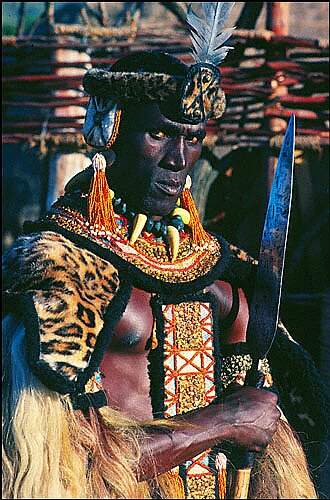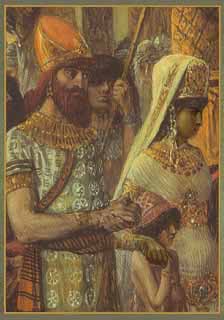
I recently finished reading Chinua Achebe's Things Fall Apart. Now, most people when talking about this novel will focus on the powerful, yet tragically flawed, main character, Okonkwo, or the main theme, which explores the Igbo culture before and after European colonization in Nigeria. I want to focus on a different aspect, however; a figure who is comparatively overlooked: Ekwefi, Okonkwo's third wife.
Before I go any further, let me first acknowledge that the people in this book are fictional; however, it is assumed that each person is meant to lend some light to the real Igbo tribe. With that in mind, let us consider some of Ekwefi’s qualities that may represent the strength of the Igbo. I was drawn to her subtle and silent, yet certain, displays of strength.
Earlier in the novel, the narrator reveals Ekwefi’s motherhood as nothing short of horrifying, where nine children fell ill and died in their infancy. A medicine man said that it was because she bore a wicked child who kept re-entering her womb to cause more suffering to its mother. “The birth of her children, which s

hould be a woman’s crowning glory, became for Ekwefi mere physical agony devoid of promise.” As the novel states, “her sorrow gave way to despair and then to grim resignation.” The names she gave her children displayed this perfectly: with meanings from “May it not happen again” to “Death may please himself.”
In spite of this, Ekwefi loves her tenth child, Ezinma, completely. Their friendship is very close, and Ezinma even calls her mother by her first name. I find it commendable that even after enduring such a trying past, she does not let the torture of it consume her. Even though she became depressed or bitter at times, she never lost her ability to love. She could have become distant or perpetually angry, like Okonkwo, who could not deal with his father’s failure, or his own failure.
Ekwefi is also victim to Okonkwo’s short temper and frequent outbursts of rage and violence. One day he is upset and comes up with an excuse to beat her because he has nothing else to do to keep his thoughts occupied. He even shoots a gun at her (he misses the shot). She takes the abuse without a word.

She is also the only of Okonkwo’s three wives audacious enough to bang his door, which she does when Ezinma falls ill one morning.
When Chielo, the prophesying priestess, comes wailing for the child Ezinma in the midd

le of the night, Ekwefi follows her on the extremely long, frightening trip to the cave, despite warnings and screaming protests from the priestess herself. Either very brave or very determined, she is willing to fight to defend Ezinma even against a god. This shows her understanding that love is more important than fear.
Ekwefi's mannerisms are cool and poised. Her kindness is unwavering, and her love is unquestioning, even towards Okonkwo, for whom she still retains affections. Her resolve is inspiring, as it isn't marred by fear, abuse, death, depression, or misfortune. She is an example of great Igbo strength and amaranthine glory.


 nd German settlers, French Protestant refugees, and enslaved Africans. In 1820 alone about 5000 British settlers arrived.
nd German settlers, French Protestant refugees, and enslaved Africans. In 1820 alone about 5000 British settlers arrived.






